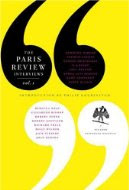Robert Gottlieb:
In book publishing, the editor and the author have the same goal: to make the book as good as it can be and to sell as many copies as possible. In a magazine, it’s a different matter. Of course a magazine editor wants the writing to be as good as possible, but he wants it to be as good as possible for the magazine, […A] book publishing house is much less bound up with the personality of its editor in chief. […] A magazine, on the other hand, is in a sense an emanation of its chief editor […] A magazine’s subscribers and advertisers and owner have a right to get every week or month whatever it is they’ve been led to expect they’re going to get.
Ernest Hemingway:
A writer can be compared to a well. There are as many kinds of wells as there are writers. The important thing is to have good water in the well, and it is better to take a regular amount out than to pump the well dry and wait for it to refill.
Dorothy Parker:
It’s easier to write about those you hate -- just as it’s easier to criticize a bad play or a bad book.
Richard Price:
If you’re the first generation of your family to go to college, the pressure on graduation is to go for financial security. The whole point of going to college it to get a job. You have it drilled into your head -- job, money, security. Wanting to be an artist doesn’t jibe with any of those three.
Robert Stone:
You construct characters and set them going in their own interior landscape, and what they find to talk about and what confronts them are, of course, things that concern you most. […] In all the arts, the payoff is always the same -- recognition. If it works, you say that’s real, that’s truth, that’s life, that’s the way thing are.
Kurt Vonnegut:
When you exclude plot, when you exclude anyone’s wanting anything, you exclude the reader, which is a mean-spirited thing to do. […] Students like to say that they stage no confrontations because people avoid confrontations in modern life. Modern life is so lonely, they say. This is laziness. It’s the writer’s job to stage confrontations, so the characters will say surprising and revealing things, and educate and entertain us all. […] Carpenters build houses. Storytellers use a reader’s leisure time in such a way that the reader will not feel that his time has been wasted. Mechanics fix automobiles.
Rebecca West, revelatory about how the dead influence the living:
We had lots of pleasant furniture that had belonged to my father’s family, none that had belonged to my mother’s family, because they didn’t die -- the whole family all went on to their eighties, nineties -- but we had furniture, and we had masses of books, and we had a very good piano my mother played on.
Billy Wilder, with a secret every modern writer now grows up knowing*:
I have a black book here with all sorts of entries. A little bit of dialogue I’ve overheard. An idea for a character. A bit of background. Some boy-meets-girl scenarios.
* but it’s the only passage I marked before Wilder carried me away on a tell-all tour of his writer-director experiences in the old movie-studio system; the pages flew!




